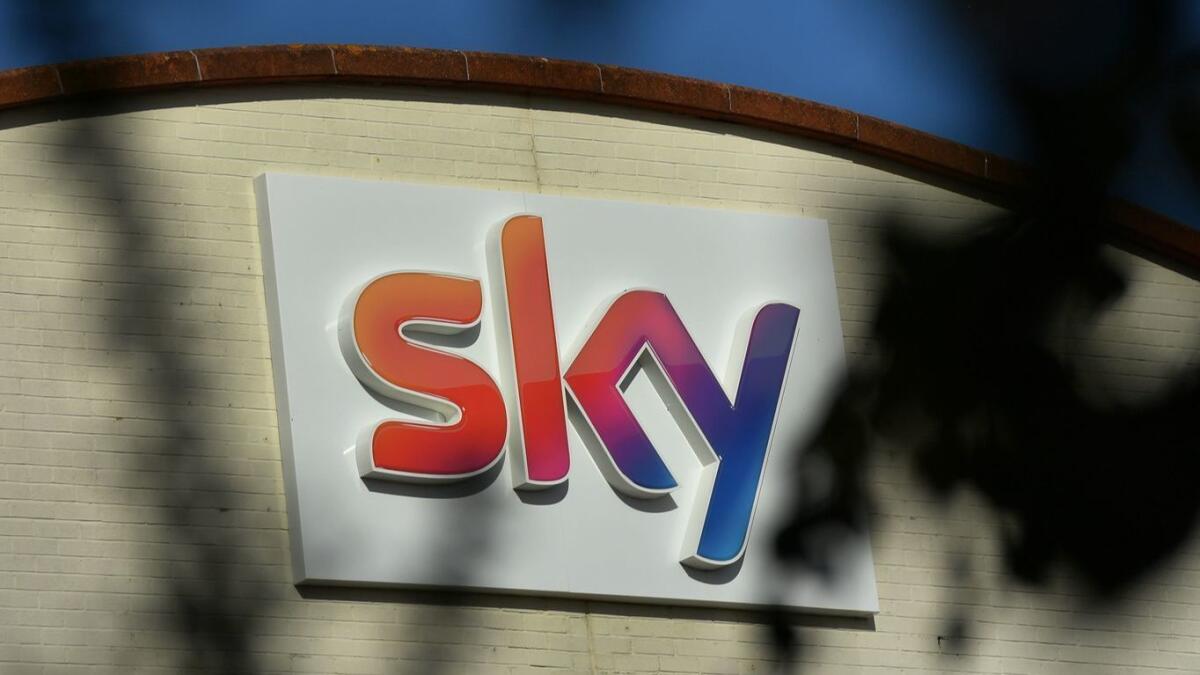Fox will sell Sky stake to Comcast for $15 billion, reducing Disney’s debt

- Share via
Rupert Murdoch’s 21st Century Fox has decided to sell its 39% stake in Sky to Comcast Corp. after the cable company won a hard-fought bidding war for the European pay-TV giant.
Fox’s stake is worth about $15 billion under the terms of the deal, the company said Wednesday.
The decision, made with the consent of Fox’s soon-to-be owner Walt Disney Co., was expected. Disney had wanted to own all of the satellite TV service, which boasts 23 million customers in five European countries. But Philadelphia-based Comcast, led by Chairman and Chief Executive Brian Roberts, prevailed in a rare auction Saturday with an offer valuing the entirety of Sky at nearly $40 billion.
Both companies wanted Sky in order to gain a bigger foothold in the international entertainment marketplace. Disney Chief Executive Robert Iger had at one point described Sky as a “crown jewel” in the Fox empire.
But losing Sky is expected to benefit Disney in other ways. Burbank-based Disney said Fox’s sale of its Sky stake will help substantially pay down the amount of debt Disney is taking on in order to complete its purchase of Fox and allow it to spend more on its all-important streaming plans.
This year, Disney won control of Fox in another bidding battle with Comcast by offering $71.3 billion for much of Murdoch’s media empire, including Fox’s Century City film and TV studio and cable networks such as FX. Disney and Fox shareholders in July approved the blockbuster transaction, which will reshape much of the corporate media landscape.
To gain regulatory approval, Disney agreed to sell Fox’s 22 regional sports networks.
By selling the minority Sky stake and the regional sports networks, Disney is expected to reduce its acquisition costs by roughly $30 billion, according to a person familiar with the matter who was not authorized to comment.
That should give the entertainment behemoth more freedom to invest in Iger’s ambitious streaming video strategy, meant to help Disney compete with tech insurgents such as Netflix. Disney is expected to launch a direct-to-consumer video service in 2019 that will include original content from its key brands, including Marvel, Pixar and “Star Wars.” Disney last week said its ESPN-branded subscription service, which costs $4.99 a month, had risen to 1 million subscribers since its April launch.
Another major part of Disney’s streaming strategy is Hulu, which it will control as a result of the acquisition. Disney will own 60% of the streaming service after the deal closes, which is expected to happen in 2019. Comcast owns 30% of Hulu, and AT&T’s WarnerMedia holds the remaining 10%. It is still unclear what Comcast and AT&T will do with their Hulu stakes; many analysts expect they will sell the stakes to Disney.
Disney shares rose $1.58, or 1.4%, to $115.21 on Wednesday. Comcast shares were little changed at $35.37.
“We don’t think missing out on Sky is a major blow to Disney’s ... strategy, as Disney already has high-quality content, the ability to create more high-quality content, and the ability to launch premium [over-the-top] products globally,” Cowen & Co. media analyst Doug Creutz said in a research note to clients.
Murdoch co-founded the satellite TV service in 1989 to compete with the venerable British Broadcasting Corp. Fox started gearing up to buy the remaining stake in the pay-TV company two years ago to fortify its base in Britain but was bogged down by regulators. Fox had previously attempted to buy all of Sky but was forced to retreat in 2011 amid an embarrassing cellphone hacking scandal at its now-defunct London tabloid, News of the World.
UPDATES:
1:25 p.m.: This article was updated with additional context about the Sky deal and updated stock prices.
This article was originally published at 9:40 a.m.
More to Read
Inside the business of entertainment
The Wide Shot brings you news, analysis and insights on everything from streaming wars to production — and what it all means for the future.
You may occasionally receive promotional content from the Los Angeles Times.











